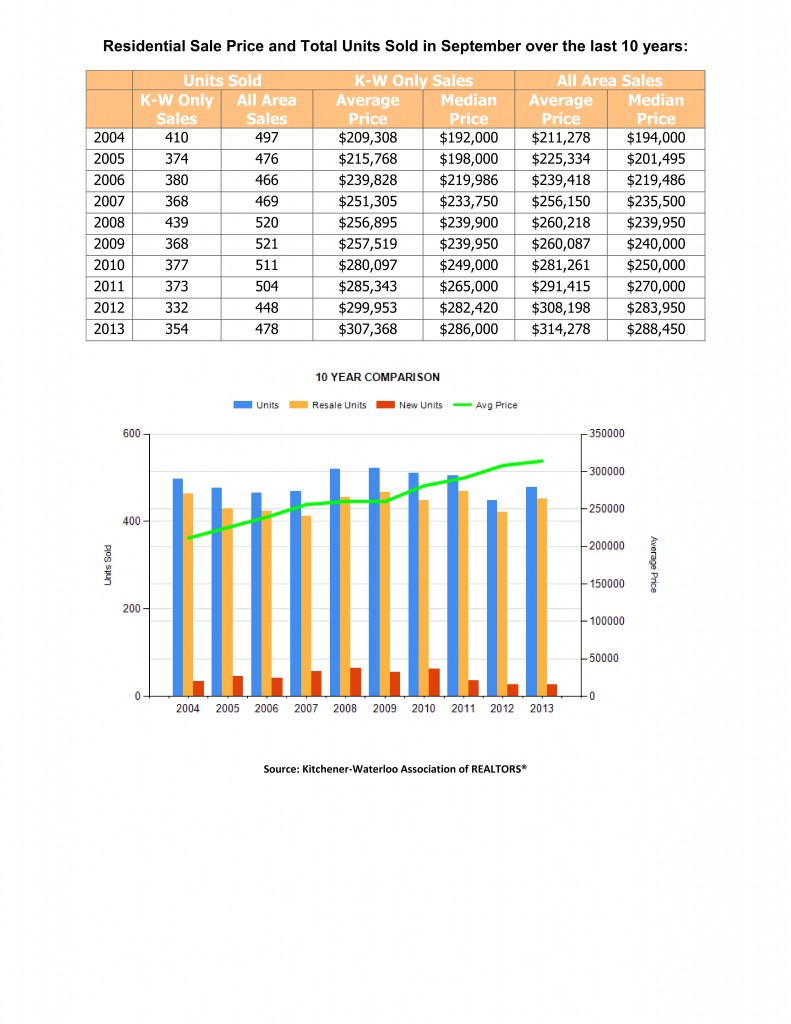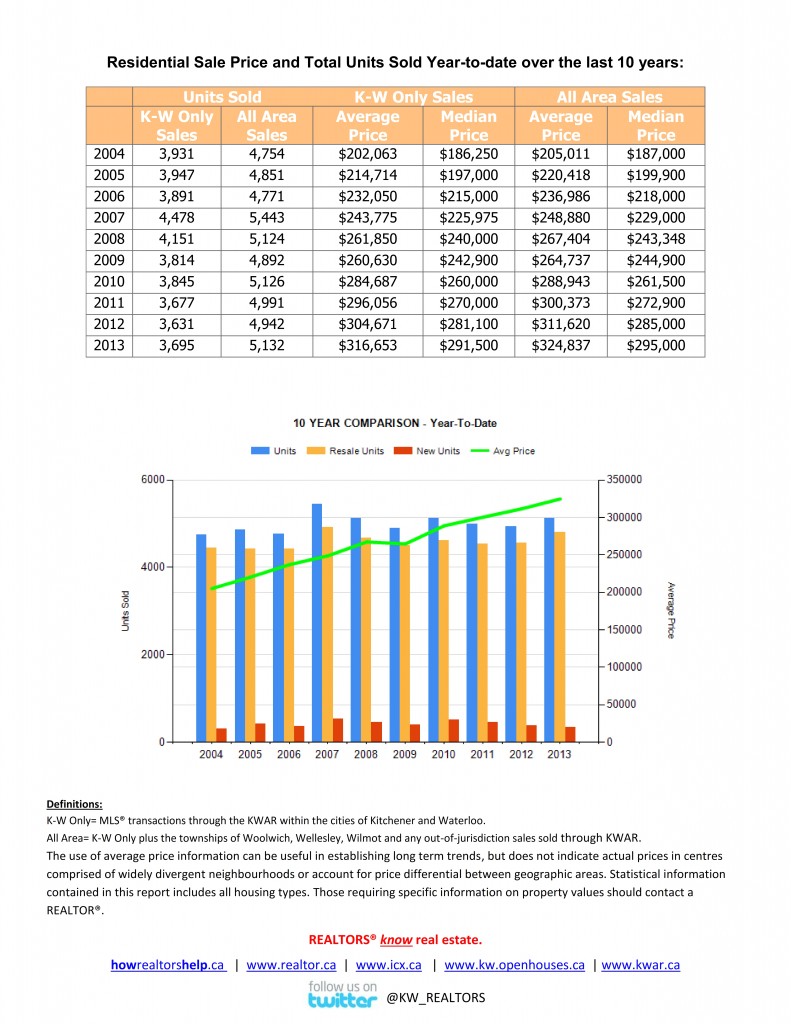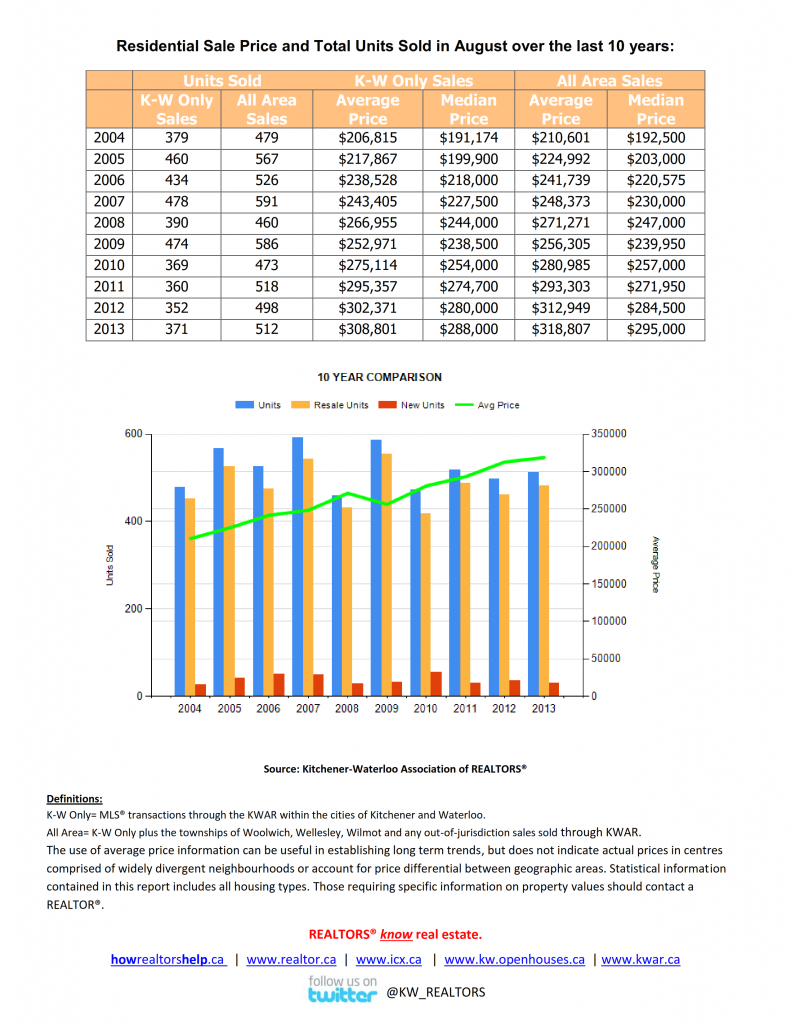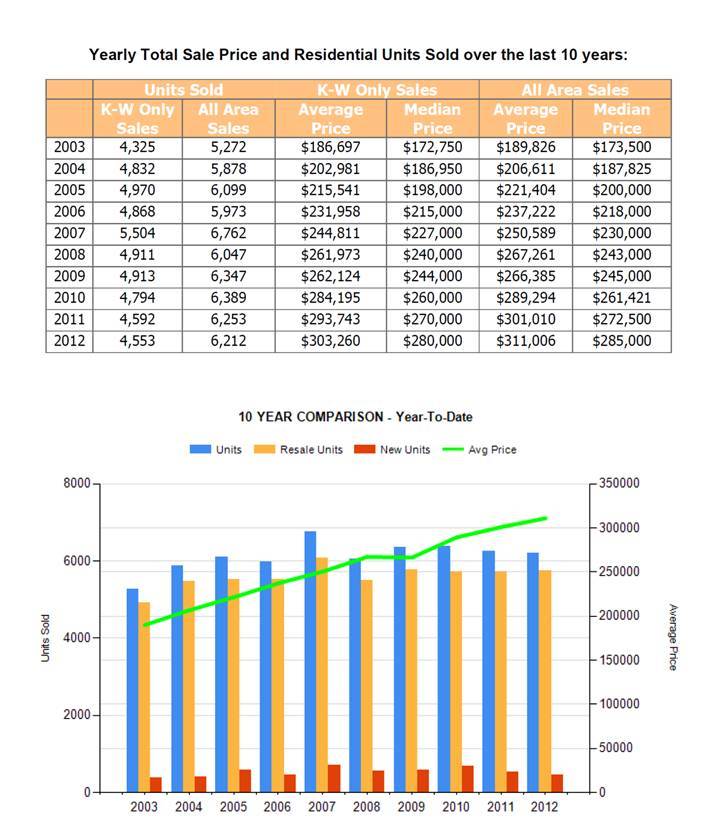September Sales Remain Strong
Friday, October 4th, 2013By Kitchener-Waterloo Association of REALTORS® (KWAR) admin •October 3th, 2013
There were are total of 478 home sales through the Multiple Listing System (MLS®) of the Kitchener-Waterloo Association of REALTORS® (KWAR) in September compared to 448 during the same period in 2012, an increase of 6.7 percent. Year-to-date 5,132 homes were sold, which is the highest number of units sold to the end of the third quarter since 2007’s record breaking year when sales had reached 5,443 to the end of September.
Single detached homes in September sold for an average price of $354,507 an increase of 1.8 percent compared to last year. The average sale price for a condominium was $221,810 a decrease of 1.4 percent compared to September of last year. The average sale price of all residential sales through the KWAR’s MLS® System increased 2.0 percent to $314,278 compared to September 2012.
“We’re continuing to see strong residential activity in the Region,” said Dietmar Sommerfeld, President of KWAR. “This reinforces the diversity of our economy and the appeal of the Region as a place to live and work.”
Residential sales in September included 310 single detached homes (up 6.9% from last September), 46 semi-detached (up 17.9%), 33 townhomes (up 13.8%) and 83 condominium units (down 2.4%). Dollar volumes for September and year-to-date sales were both at all-time highs with increases of 9.0 percent and 8.3 percent respectively.
The average price of all residential properties sold year-to-date was $324,837 representing a 4.2 percent increase. Single Detached homes increased 3.7 percent to the end of September, bringing up the year-to-date average price to $368,002.
The KWAR cautions that average sale price information can be useful in establishing long term trends, but should not be used as an indicator that specific properties have increased or decreased in value. The average sale price is calculated based on the total dollar volume of all properties sold. Those requiring specific information on property values should contact a local REALTOR®.
















